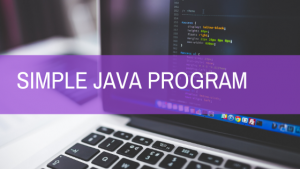Java, an object-oriented programming language, has held a significant position in the realm of software development since its inception. With an intriguing history and robust features, Java continues to be a leading choice among developers worldwide.
The Origin of Java
If we explore the history of Java, we can discover that a group of computer scientists at Sun Microsystems played a significant role in creating this advanced programming language.
Java’s Developers
The brainchild of a small, passionate team led by James Gosling, Java was initially designed for interactive television, but its broader potential soon became evident.
Features of Java
Java’s impressive features have bolstered its standing in the software industry. Enroll in a Java Course to learn more today.
Object-Oriented
Java is an object-oriented programming language. This design allows developers to create modular programs and reusable code, enhancing efficiency and reducing redundancy.
Platform Independent
One of the key selling points of Java is its platform independence, meaning that Java programs can run on any device equipped with a Java Virtual Machine (JVM).
Multithreading
Java supports multithreading, which enables concurrent execution of two or more parts of a program for maximum utilization of CPU.
High Performance
Java is designed for high performance, with its bytecodes executed at high speed by the JVM.
Robust and Secure
Java’s robustness and security features are another significant asset. It reduces errors during runtime and offers numerous security features such as cryptography and access control for secure data transmission.
Writing Your First Java Program
Getting started with Java involves familiarizing oneself with its syntax, writing a basic program, and learning to debug.
Java Syntax
Java syntax is the set of rules defining how a Java program is written and interpreted.
The Hello World Program
The classic Hello World program is a simple way to illustrate the basic structure and syntax of a Java program.
Debugging in Java
Debugging in Java involves finding and fixing errors or bugs in your code.
Core Components of Java
Java’s core components, the Java Virtual Machine (JVM), Java Runtime Environment (JRE), and Java Development Kit (JDK), are essential for every developer to understand. Check out Java Interview Questions for more information.
Java Virtual Machine
The JVM is a software implementation that executes Java bytecodes, ensuring Java’s platform independence.
Java Runtime Environment
The JRE provides the libraries and other files that JVM utilizes at runtime.
Java Development Kit
The JDK is a software package containing JRE and development tools for developers to code and run Java programs.
Data Types in Java
Java includes several data types, broadly categorized as primitive and non-primitive.
Primitive Data Types
Primitive data types include byte, short, int, long, float, double, boolean, and char.
Non-primitive Data Types
Non-primitive data types include classes, interfaces, and arrays.
Operators in Java
Java supports various types of operators such as arithmetic, logical, relational, assignment, and bitwise operators.
Control Statements in Java
Control statements in Java, such as decision-making and looping statements, control the flow of execution in a program.
Java Exception Handling
Exception handling in Java, through types of exceptions and the try-catch block, aids in managing the runtime errors and maintaining the normal flow of application.
Java OOPs Concepts
Java’s object-oriented concepts, such as class and objects, inheritance, polymorphism, abstraction, and encapsulation, allow for creating complex, real-world applications.
Java Collections Framework
The Java Collections Framework provides a unified architecture for manipulating and representing collections, allowing operations such as searching, sorting, insertion, manipulation, and deletion of data.
Advanced Java Topics
Advanced Java covers specialized domains like JDBC, Servlets, and JSP which are crucial for web application development.
Conclusion
Java, with its robust features, platform independence, and extensive library, is an indispensable tool in today’s tech industry. Whether it’s building web applications, software tools, or data analysis, Java is equipped to handle it all.




